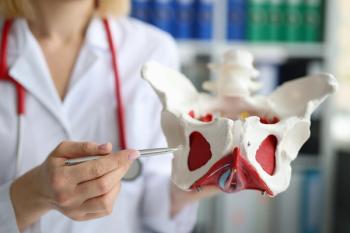
A large study shows that an AI algorithm analyzing routine mammograms can match leading cardiovascular risk models.

A large study shows that an AI algorithm analyzing routine mammograms can match leading cardiovascular risk models.

Objective measurements of fetal activity show that more frequent movements are associated with stronger maternal-fetal bonding.

A trial found that avoiding risky ingredients lowered urinary chemical concentrations, indicating a need for stronger labeling.

A study found women with long COVID face higher rates of abnormal uterine bleeding, heavier flow, and longer periods.

Review some of the top stories from the Contemporary OB/GYN website over the past week and catch up on anything you may have missed.

A study found that pregnancy malaria and preterm delivery increase early-life susceptibility to malaria in children.

A study found that insomnia and obstructive sleep apnea during pregnancy are linked to increased risks of ischemic placental disease and severe morbidity.

A study found that recommended treatment significantly increases survival rates in women aged 65 years and older with early-stage cervical cancer.

New research reveals rising non-adherence to cervical cancer screening and declining HPV vaccine awareness since the pandemic.

A study found that more than half of heart attacks in women aged under 65 years stem from factors beyond clogged arteries.

A study found universal first-trimester cytomegalovirus screening could reduce poor pregnancy outcomes and save health care costs.

New research shows oral HRT increases cardiovascular risks in women with type 2 diabetes, while transdermal HRT appears to be safer.

A study found 16S nanopore sequencing offers high accuracy in identifying intraamniotic infection, a major contributor to preterm delivery.

A study found that women exposed to computed tomography imaging before conception faced increased odds of pregnancy loss and congenital anomalies.

Review some of the top stories from the Contemporary OB/GYN website over the past week and catch up on anything you may have missed.

A study found women with Medicaid insurance are more than twice as likely to experience delays in starting cervical cancer treatment.

Women with a history of cervical cancer face nearly double the risk of anal cancer, highlighting the need for tailored screening guidelines.

Find out the top 5 latest updates and headlines in folic acid research in honor of National Folic Acid Awareness Week (September 8-14, 2025).

A trial shows all surgical approaches for vaginal vault prolapse enhance body image and sexual health in women.

A study found that women with a nutrition major in college and access to folic acid information were more likely to plan folic acid supplementation prior to pregnancy.

A study found that hysteropexy patients faced a greater long-term risk of surgical retreatment compared with hysterectomy.

A study found continuous glucose monitoring improves glycemic control vs self-monitoring in diabetes during pregnancy.

The updated guidelines emphasize shared decision-making, early counseling, and pregnancy heart teams to improve outcomes.

A study found women with preeclampsia face a 1.5-fold increased risk of cardiovascular disease, highlighting the need for early monitoring.

A study found that women receiving hysterectomy, especially with bilateral oophorectomy, face a significant increase in stroke risk.

Review some of the top stories from the Contemporary OB/GYN website over the past week and catch up on anything you may have missed.

A new study finds extreme pregnancy nausea often leads to emotional distress and highlights a need for better care.

The USPSTF cites a lack of strong data to support routine screening or supplementation for iron deficiency in asymptomatic pregnant individuals.

A new study reveals that hormonal contraceptives not only regulate reproductive health but also influence emotional reactivity.

A study highlights common, preventable risk factors such as obesity and diabetes that could impact outcomes.